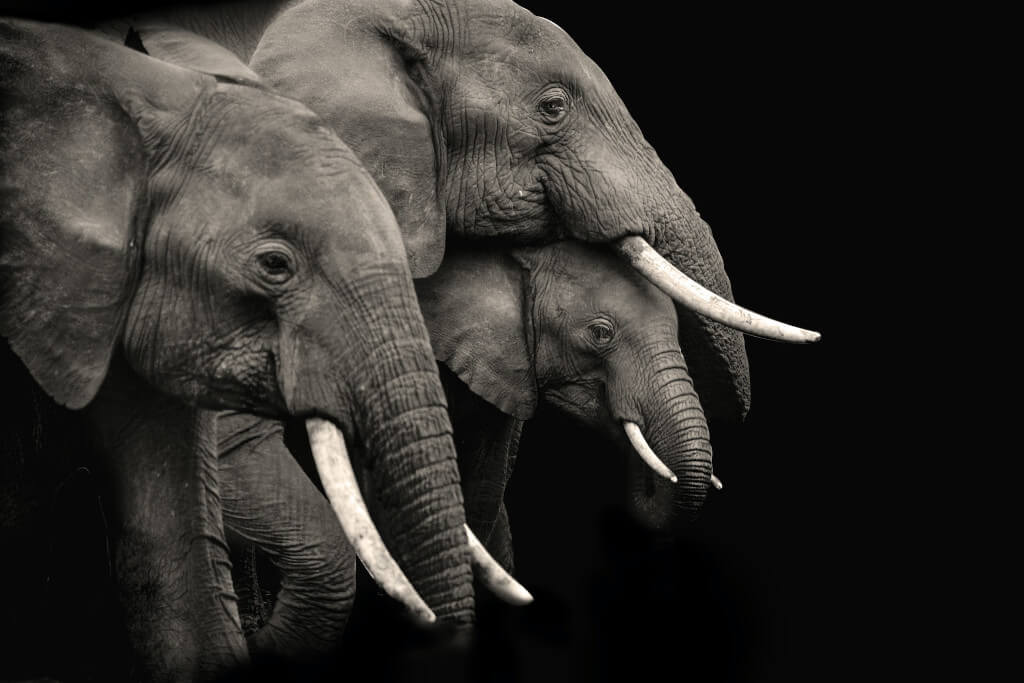In an era where the battle to preserve biodiversity and endangered species becomes increasingly urgent, several spirit brands have risen to the occasion, embarking on significant initiatives to contribute to the protection and conservation of threatened species across different regions. While charity events and fundraisers have long been a part of the corporate responsibility repertoire, some liquor manufacturers have adopted a more hands-on approach to conservation, steering the industry towards a path of environmental stewardship. We want to shed light on four pioneering brands that have dedicated resources, time, and creative ingenuity to support the well-being of endangered species.
Amarula: Championing Elephant Conservation
Originating from South Africa, Amarula has transformed its deep connection with the African Elephant into a powerful conservation effort. Recognizing the alarming rate at which African elephants are being poached, with one being killed every 20 minutes, the brand has leveraged its platform to work actively towards altering this devastating trend that could potentially see these majestic creatures extinct by 2030.
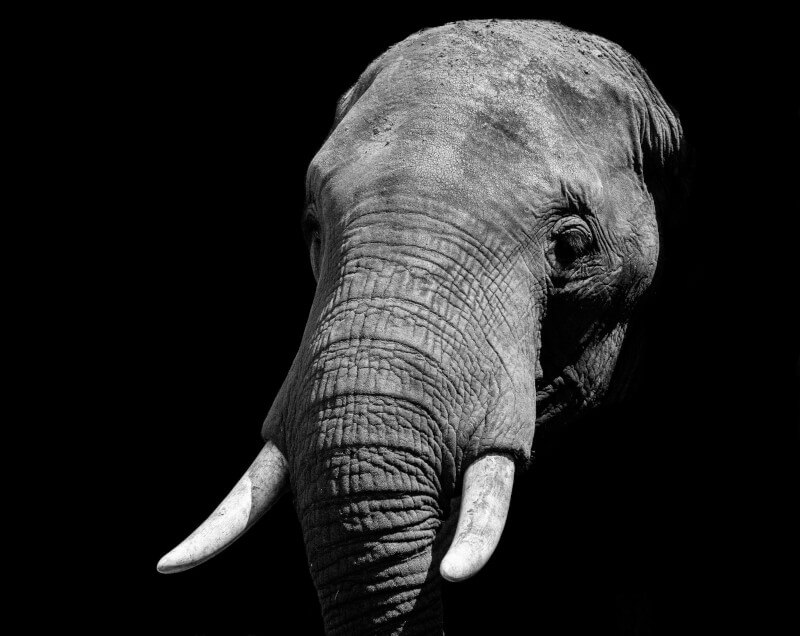
In 2002, the brand established the non-profit Amarula Trust, a beacon of hope in the dark times facing the elephants. This organization channels its efforts into research and educational initiatives designed to enhance the safety of these magnificent beasts. Amarula went a step further in 2017 by pledging to donate one dollar for every bottle sold during the last quarter of the year to the Amarula Conservation Trust. This endeavor took a brief hiatus in 2019 to focus on a new bottle release but resumed with funds raised in 2017 and 2018 still actively facilitating conservation activities. Here are some of the notable projects and collaborations they engaged in:
Notable Projects and Collaborations
- Amarula Elephant Research Programme (AERP)
- Founded in: 2003, with the collaboration of Amarula and Dr. Rob Slotow from the University of KwaZulu-Natal.
- Objective: The primary focus of this program has been to research the African elephants, understand their ecology, and thereby inform management and policy decisions to foster human-elephant coexistence.
- Achievements: This program has helped facilitate the gathering of essential data on African elephants, which in turn has guided effective conservation strategies.
- World Elephant Day
- Founded in: Initiated in 2012 globally; Amarula joined the movement in 2016.
- Objective: Amarula has used this day to raise awareness globally about the urgent plight of African elephants.
- Achievements: The campaign successfully reached millions globally, encouraging people to buy Amarula as a means to contribute to the conservation of elephants, as a portion of each sale goes to the Amarula Trust for conservation efforts. In recent years, Amarula created a series of limited edition bottles with special artwork to commemorate the day, with proceeds going to conservation projects.
- Don’t Let Them Disappear Campaign
- Founded in: Initially launched in 2017.
- Objective: The campaign aimed to highlight the alarming rate at which African elephants were being poached, virtually disappearing from the face of the earth, and to foster efforts to prevent this.
- Achievements: Amarula removed the elephant icon from their bottles for a period, a powerful visual gesture to signify the potential future without elephants. The campaign managed to significantly raise awareness about the fast-declining population of African elephants.
Collaborative Initiatives
- Collaboration with WildlifeDirect
- Founded in: The partnership has been ongoing for several years, solidifying further in recent years.
- Objective: This collaboration works towards ensuring the protection of African elephants and their habitat.
- Achievements: WildlifeDirect brings its expertise in wildlife conservation to the partnership, while Amarula provides funding from its sales to support WildlifeDirect’s hands-on conservation efforts on the ground. This partnership has seen various initiatives being launched to protect elephants and their habitats.
- Collaboration with the African Elephant Research Unit
- Objective: To fund and support research initiatives undertaken by this unit which is dedicated to the conservation of African elephants.
- Achievements: Through funding from the Amarula Trust, the unit has been able to carry out vital research on the behavioral patterns, movements, and trends in the elephant populations, which in turn has been crucial in shaping conservation strategies and policies.
The initiatives depict a brand that is dedicated to using its platform to not only raise awareness but actively engage in the sustained well-being and protection of African elephants.
Grey Whale Gin: Protecting California’s Coastline and Its Whales
In a picturesque setting like Big Sur, inspiration struck Jan and Marsha Mokhtari to create a gin that would echo the beauty of California’s coastline and become a bastion of support for the grey whales inhabiting the Northern Pacific. Although not officially listed as endangered, the grey whale population is a matter of concern, with just about 27,000 left.
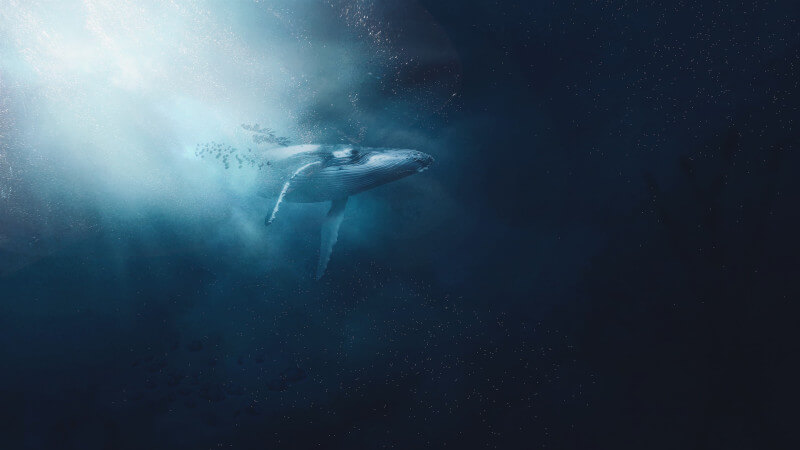
In collaboration with the marine conservation organization Oceana, Grey Whale has committed to donating one percent of all its sales towards the cause. To augment their conservation initiatives, they also craft candles from recycled gin bottles, channeling all the proceeds to support Oceana’s mission. The Grey Whale gin itself is a tribute to the California region, incorporating locally sourced ingredients such as Mendocino coast sea kelp and Big Sur juniper, offering not only a delightful product but also a narrative of conservation and regional celebration.
Reyka Vodka: Advocating for the Protection of the Atlantic Puffin
Reyka has etched its name in the spirits industry not just for its remarkable products but also for its sustainable operations powered entirely by geothermal energy. However, the brand’s commitment to ecological responsibility extends far beyond its manufacturing process. In April 2019, the brand directed its efforts towards protecting the Atlantic puffin, a species symbolic of Iceland but facing the danger of extinction.
The charm and endearing nature of these birds have spurred Reyka to create an adoption program in partnership with the National Audubon Society. The initiative, which allows people to ‘adopt’ a puffin as a personal gesture or as a thoughtful gift, also raises funds through the sale of Project Puffin merchandise, including T-shirts, hats, and digital downloads, all geared towards fostering scientific research, conservation, and enhancing public awareness regarding the birds’ plight.
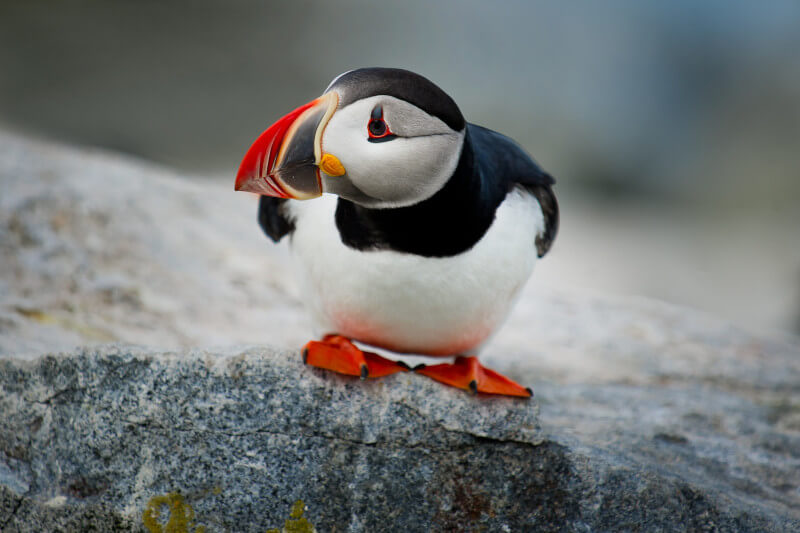
A crucial part of their campaign in support of puffin conservation has been the promotion of scientific research. The brand has been a facilitator, encouraging research initiatives aimed at understanding the breeding patterns, feeding habits, and migratory patterns of the Atlantic puffins, a step that is imperative to crafting informed conservation strategies.
Reyka Vodka has been instrumental in the championing of public awareness programs. These initiatives have been geared towards educating the public on the impending dangers faced by the puffin population, aiming to foster a community of individuals who are informed and invested in the protection of the species. The campaigns adopt a data-driven approach, laying bare facts and figures that illustrate the urgency of the situation, thereby encouraging a culture of conservation.
Their Collaborations
- Workshops: In terms of collaborations, Reyka has engaged with a variety of environmentalists and conservation experts, facilitating workshops and seminars that aim at brainstorming sustainable solutions for the protection of the Atlantic puffin. By bringing together experts from diverse fields, Reyka ensures a multi-dimensional approach to conservation, encompassing not just biological and ecological expertise but also integrating insights from the fields of community management, policy-making, and environmental education.
- Habitat Clean-Ups: The brand has further initiated clean-up drives in puffin habitats, working closely with local communities to ensure the maintenance of clean and safe breeding environments for the puffins. These activities not only work towards creating a direct impact on the ground but also cultivate a sense of community involvement and responsibility towards the species’ conservation.
- Art Galleries: Reyka also supported and fostered art installations and exhibitions that artistically narrate the life of the puffins, blending art and conservation in a bid to appeal to a wider audience and instill in them an appreciation and a sense of urgency to protect the vibrant yet endangered life of the Atlantic puffins.
The Snow Leopard Vodka
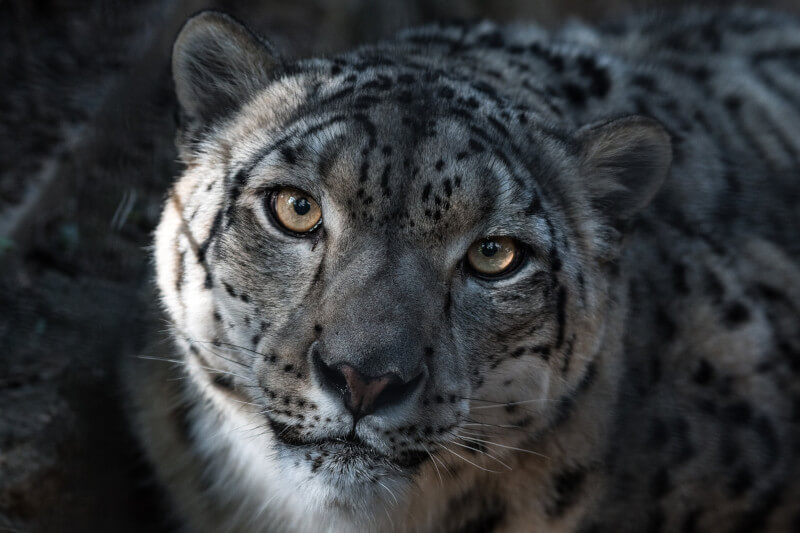
The enigmatic snow leopard captured the heart of British businessman Stephen Sparrow during his visit to the Himalayas, fostering a deep desire to contribute to the conservation of this highly endangered species. Acting upon this urge, Sparrow created the Snow Leopard Vodka in 2006, a fine spirit crafted using spells to reflect the leopard’s elegance while supporting the efforts of the Snow Leopard Trust, the preeminent organization dedicated to species protection.
Currently, only around 7,000 snow leopards remain in the wild, a fact that underscores the critical role of the trust in collaborating with rural communities to secure livestock enclosures and foster business opportunities that aim to reduce the demand for snow leopard meat. Apart from donating 15% of its annual profits to the foundation, Snow Leopard Vodka organizes fundraisers for smaller cats, primarily in St. Louis, creating a ripple effect of positive change in animal conservation.
These Brands Cant Do It Without Your Help
The conscious endeavors of Amarula, Grey Whale, Reyka, and Snow Leopard Spirit demonstrate the spirit industry’s potential to champion the cause of endangered species. Through sustained efforts, innovative programs, and a deep-seated commitment to ecological conservation, these brands are crafting fine spirits and in the same breath shaping a future where business harmoniously coexists with nature, nurturing and protecting the delicate balance of our ecosystem. If this is something near to your heart, you as the consumer should become active participants in a global effort to secure a safer habitat for endangered species, fostering a culture of responsible enjoyment and awareness. It remains imperative for consumers to support such initiatives, fostering a future where business and biodiversity flourish side by side.

